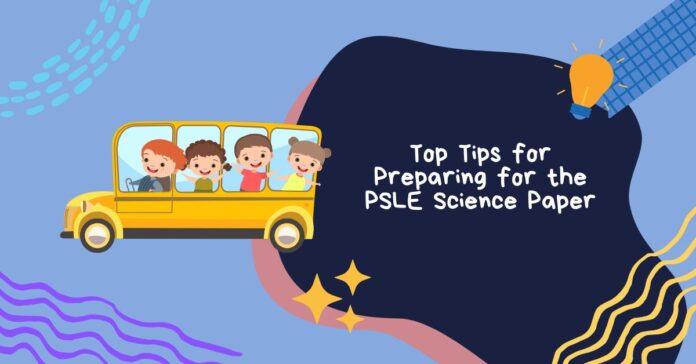Preparing for the PSLE Science paper can feel like a daunting task, but with the right approach, it becomes manageable and even enjoyable. The key is to focus on understanding concepts, practicing questions, and managing time effectively. If your child is struggling, PSLE Science tuition can also provide targeted support to improve their confidence and results. This blog will cover essential tips to help students ace the PSLE Science paper and approach the exam with clarity and confidence.
1. Understand the PSLE Science Syllabus
Before diving into preparation, ensure you and your child are familiar with the syllabus. The PSLE Science syllabus focuses on foundational topics such as life systems, matter, energy, and interactions within the environment. Create a checklist of the topics to monitor progress and ensure all areas are covered thoroughly.
2. Master Key Scientific Concepts
The PSLE Science paper tests understanding rather than memorization. Focus on helping your child understand key concepts and how they apply to real-life situations. For instance, explain the water cycle by observing natural weather patterns. Encourage curiosity by linking textbook topics to everyday examples, making learning more engaging and relatable.
3. Practice with Past-Year Papers
One of the most effective ways to prepare is by practicing past-year papers. This helps students familiarize themselves with question formats and time management. Make it a routine to solve one paper per week, and gradually increase the frequency as the exam approaches. Reviewing answers and understanding mistakes is just as important as practicing.
4. Focus on Open-Ended Questions
Open-ended questions can be challenging because they require clear explanations. Teach your child to structure their answers using the Claim-Evidence-Reasoning (CER) method:
- Claim: State the answer clearly.
- Evidence: Provide relevant data or facts to support the claim.
- Reasoning: Explain how the evidence supports the claim.
Encourage concise and accurate responses to maximize marks.
5. Build a Strong Vocabulary for Science
Science has its own language, and understanding terminology is crucial. Create flashcards with scientific terms and their definitions. For example, terms like “photosynthesis” or “condensation” should be well-understood, both in meaning and context. Incorporate these terms during discussions to make them second nature.
6. Use Visual Aids for Better Understanding
Diagrams, charts, and mind maps are excellent tools for learning Science. Help your child create visual aids for topics like the human digestive system, food chains, or the life cycle of a butterfly. Visual representation makes it easier to recall information during the exam.
7. Time Management During the Exam
Many students struggle to complete the PSLE Science paper within the allocated time. Teach your child to allocate time wisely:
- Spend 1 to 2 minutes on each multiple-choice question.
- Use the remaining time to focus on open-ended questions, ensuring answers are clear and concise.
Practice timed mock exams to improve their speed and accuracy.
8. Incorporate Active Learning Techniques
Engage your child in activities that encourage active learning. Conduct simple experiments at home, such as growing plants to understand photosynthesis or mixing baking soda and vinegar to observe chemical reactions. These hands-on activities make learning enjoyable and help reinforce concepts.
9. Seek Help When Needed
If your child finds certain topics particularly difficult, consider enrolling them in PSLE Science tuition. A good tutor can provide personalized guidance and explain challenging concepts in simpler ways. Tuition classes often include targeted practice and mock tests to prepare students effectively for the exam.
10. Maintain a Balanced Routine
Lastly, ensure your child maintains a healthy balance between study and rest. Encourage regular breaks during study sessions, a nutritious diet, and sufficient sleep. A well-rested mind is more receptive to learning and better equipped to handle exam stress.
Conclusion
Preparing for the PSLE Science paper is not just about hard work, but also about working smart. By focusing on understanding concepts, practicing strategically, and building confidence, students can tackle the exam with ease. Whether through independent study or the support of PSLE Science tuition, the right approach can make a significant difference. Start early, stay consistent, and remember to celebrate small victories along the way. With determination and effort, success in the PSLE Science paper is well within reach.

